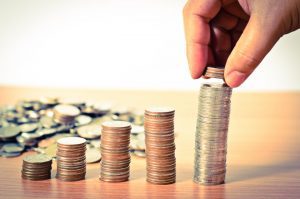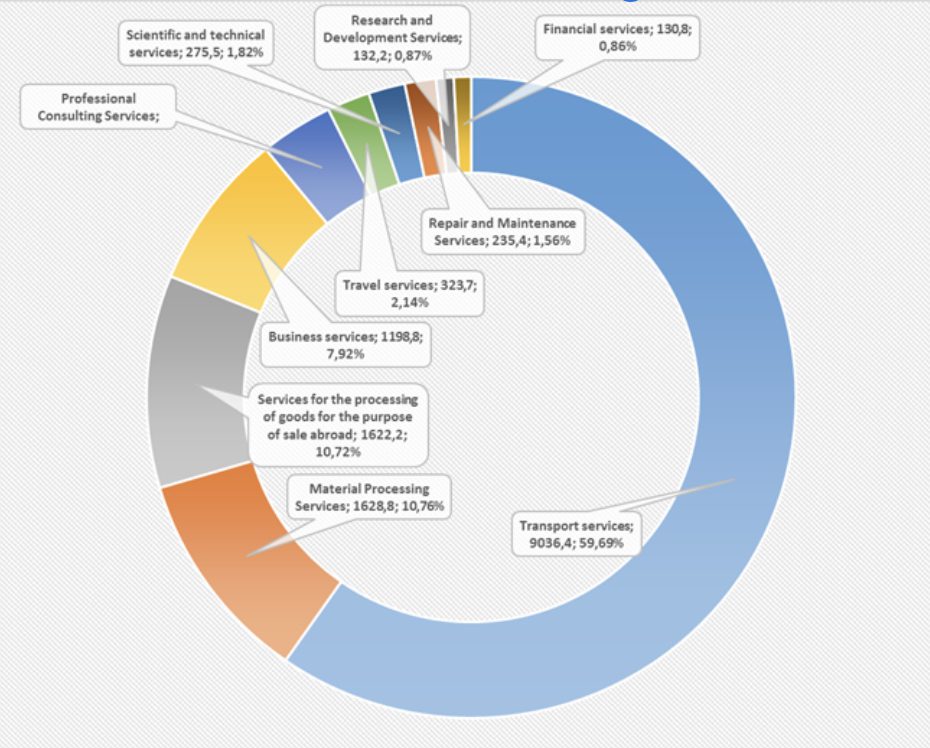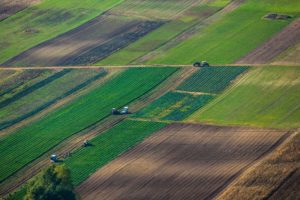
The share of shadow operations in Ukraine in 2018 amounted to 23.8% of GDP, or UAH 846 billion, according to preliminary results of an Ernst & Young study supported by Mastercard, published by the National Bank of Ukraine (NBU).
The receipts of the general fund of Ukraine’s national budget totaled UAH 42.6 billion in January 2020, which is UAH 13.8 billion less than the monthly target, thus it was met by 76%, the Finance Ministry has reported, referring to tentative data from the State Treasury Service of Ukraine.
Morgan Stanley has improved the forecast for the growth of the Ukrainian economy in 2020 to 3.6% of GDP from 3.2% of GDP in the October forecast, according to the bank’s report available to Interfax-Ukraine.
The potential reintegration of Donbas might add up to 1.5 percentage points (pp) to Ukraine’s GDP growth during two or three years, Bank of America (BofA) has said in its analytical review.
The growth of gross domestic product (GDP) of Ukraine in October-December 2019 amounted to 1.5% compared to the same period in 2018, while in the previous quarters the growth rate was higher: 4.1% in the third, 4.6% in the second and 2.5% in the first.
Growth of Ukraine’s GDP in 2019 slowed from 3.4% in 2018 to 3.3%, while the drivers of this growth have changed, the Ministry of Economic Development, Trade and Agriculture of Ukraine said.
Capital investments in Ukraine in 2019 increased by 15.5%, while in 2018 their growth was 16.4%, and a year earlier some 22.1%, the State Statistics Service has said.
The surplus of Ukraine’s foreign trade in services in 2019 increased by 63.5% compared to 2018, to $8.71 billion, the State Statistics Service has said.
Inflation in Ukraine in January 2020 amounted to 0.2% compared to 1% in January 2019, which led to its annual decline to 3.2% from 4.1%, the State Statistics Service has reported.
The National Bank of Ukraine (NBU) is creating a contact group of the monetary and foreign exchange markets for exchange of information and opinions among their participants regarding the real state of these markets and their development.
The total state debt of Ukraine in January 2020, due to the weakening of the hryvnia exchange rate by 5.2%, in U.S. dollar terms decreased by 1.1%, or by $940 million, to $83.43 billion, the Finance Ministry has said.
Industrial production in Ukraine in January 2020 decreased by 5.1% compared to January 2019, while in January last year a decrease of 3.3% was recorded compared to the same month of the previous year, the State Statistics Service has said.
Ukraine since the beginning of the marketing year 2019/2020 (MY, July-June) and as of February 24, 2020 had exported 39.48 million tonnes of grain and legumes, which is 7.65 million tonnes more than on the same date of last MY.
Transport enterprises of Ukraine reduced cargo transportation by 12.3% in January 2020 compared to January 2019, to 44 million tonnes, the State Statistics Service has reported.
The volume of construction work in Ukraine in January-2020 increased by 3.6% compared with January 2019 and amounted to UAH 7.4 billion, in December 2019 compared to December a year earlier by 6.8%.
Ukraine has increased exports of IT services in 2019 by 30.2%, to $4.17 billion, according to a posting on the website of the IT Ukraine association, referring to data of Ukraine’s balance of payment.
Ukraine’s retail trade turnover in January 2020 in comparable prices increased by 12.1% compared with January 2019, the State Statistics Service has reported.
Structure of export of services in Ukraine in 2019 (graphically)


Prime Minister of Ukraine Denys Shmyhal believes that the possibility of selling land to foreigners or foreign companies should be decided exclusively at an all-Ukrainian referendum.
“The possibility of selling land to foreigners or foreign companies should be decided exclusively and solely at an all-Ukrainian referendum,” Shmyhal said on air of The Right to Power program on the 1+1 television channel on Thursday evening.
At the same time, the prime minister emphasized that Ukrainians should have the right and opportunity to dispose of their land. “As for the issue of the possibility of selling state land, this is a matter of discussion in parliament,” the prime minister said.

New supply on the office real estate market in Kyiv in 2019 was around 100,000 square meters and record-hitting 255,000 square meters of areas are announced to go live in 2020
“Over the past four years, the Business Expectations Index in construction has grown significantly (137.9 points) and has broken an eight-year record. Thus, the new supply almost doubled compared to 2018 and amounted to about 100,000 square meters, and the total supply of office space in Kyiv amounted to 1.8 million square meters,” CBRE Ukraine (Kyiv), the consulting company, said in a press release.
According to developers’ announcements, in 2020 a record number of areas should enter the market – about 255,000 square meters. Moreover, in 2021 an additional 250,000 square meters is expected to go live and in 2022 some 250,000-300,000 square meters.
“The shortage of quality space in Kyiv resumed the activities of developers, as evidenced by an increase in the volume of new supply by 70% year-over-year in 2019. Despite such a sharp increase in the volume of new space, it is expected that the bulk of it will be absorbed by IT and the flexible office segment, due to pent-up demand for large quality areas,” CBRE Ukraine said.
Thus, the average vacancy rate is likely to remain at the same level or show a slight increase in the best areas on the market.
“If in the next two to three years, demand will correspond to the supply, then significant fluctuations in rental rates are not expected,” CBRE Ukraine said.